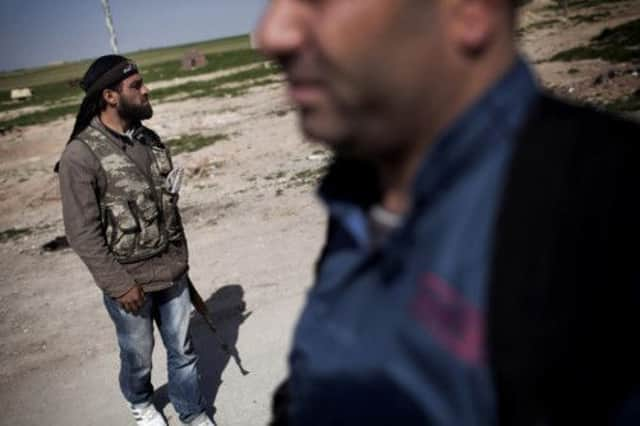Syria’s Kurds drive out rebels to tighten grip


This week’s moves could be a first step toward creating an autonomous region similar to the one Kurds run across the border as virtually a separate country within Iraq. But the Kurds’ drive has angered rebels fighting to topple Syrian president Bashar al-Assad.
Kurds are the largest ethnic minority in Syria, making up more than 10 per cent of the country’s 23 million people. They are centred in the northeastern province of Hassakeh, between the borders of Turkey and Iraq. The capital Damascus and Syria’s largest city, Aleppo, also have several predominantly Kurdish districts.
Advertisement
Hide AdAdvertisement
Hide AdThe declaration of their civil administration on Tuesday was a sign of Kurds’ growing confidence after taking control of most of Hassakeh province in an offensive against jihadis. The fighters, known as the People’s Protection Units, have driven militants out of towns and have captured long stretches along the borders with Turkey and Iraq. Only a day after the announcement, activists said Kurdish fighters captured nine villages from jihadis.
Kurdish fighters are now in control of all predominantly Kurdish cities in the province, as well as dozens of villages and towns, though jihadis continue to control predominantly Arab towns.
“More than 75 per cent of the province is in the hands of the People’s Protection Units,” said Kurdish journalist Malba Ali.
Mr Assad’s forces largely pulled out of the region late last year when the Syrian military was stretched by fighting with rebels elsewhere. The withdrawal sparked a fierce competition between rebels and the Kurds.
Kurdish officials said they launched their offensive in recent months after coming under repeated attack by jihadis from two al-Qaeda-linked groups fighting against Mr Assad – Jabhat al-Nusra, or the Nusra Front, and the Islamic State in Iraq and the Levant.
The Kurds say jihadis wanted to dominate their region and impose their hardline ideology on the population, which is largely secular.
“As long as there are attacks by these groups, it is our duty in the People’s Protection Units to defend our people by all available means,” a spokesman said.
He said the Kurdish force has been so successful against the jihadis because “it is fighting on its land and among its people”.
Advertisement
Hide AdAdvertisement
Hide AdThe units are dominated by members of the Kurdish Democratic Union Party, or PYD, Syria’s most powerful Kurdish group, affiliated with the Turkish Kurdish movement PKK, which has long fought for autonomy in south-east Turkey.
The PYD is also the main faction behind the creation of the transitional civil administration for “western Kurdistan,” announced on Tuesday.